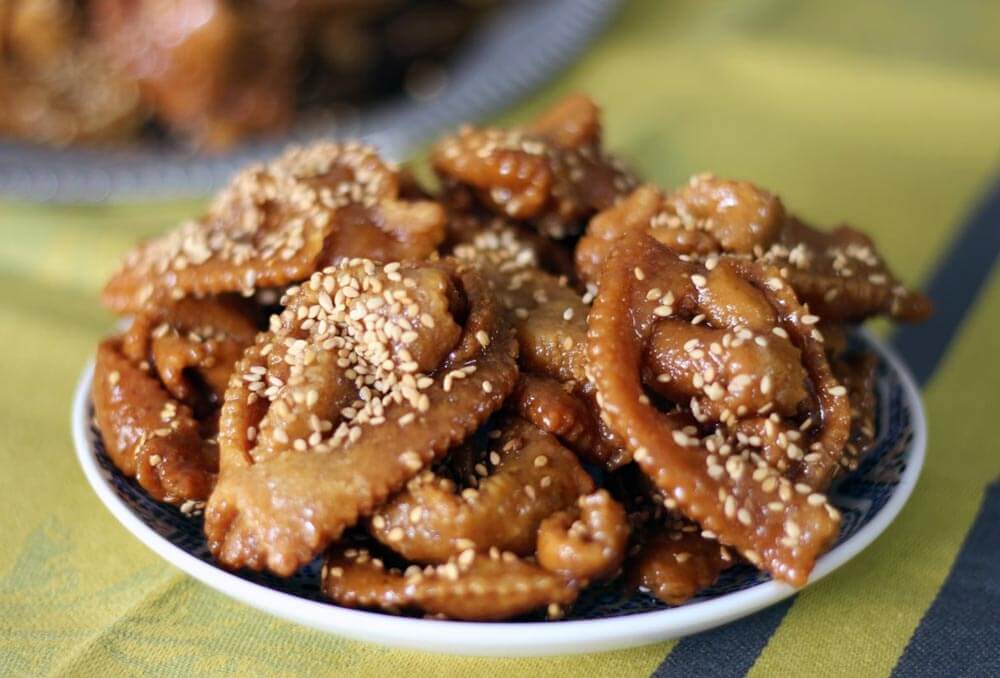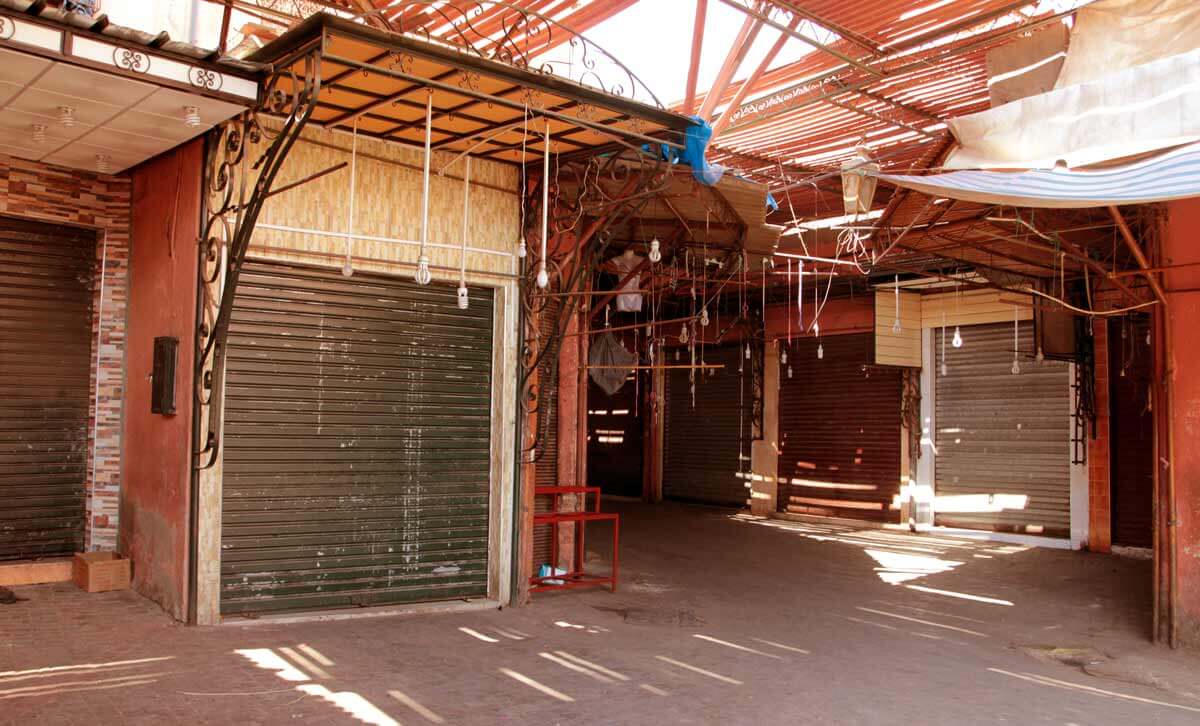During Ramadan, the pattern of everyday life in Morocco is considerably disrupted, including certain restrictions and limitations affecting tourists. However, timing your holiday to coincide with the fasting period can prove an exciting experience.
Around 98.7 % of the Moroccan population is Muslim. Most adhere stringently to the fasting period and the various associated rules. As a result, daily life’s rhythm follows a different pace during Ramadan than at other times of the year.
Tourists will also feel the impact, and the Muslim month of fasting inevitably affects non-Muslims, too. For example, many restaurants, cafés, and shops remain closed during the day. Public transport runs to a limited schedule, and the opening hours of some attractions are restricted. Most Moroccans adhere to the fast, leaving many rather enervated during the day. As a result, visitors may find that they are less frequently approached when they pass through the souks. Equally, some Moroccans can become almost overtired, appearing more agitated than usual due to the stress of the fast.
Any restrictions only apply during the day, and these are soon forgotten once the sun sets and the breaking of the fast approaches. Suddenly, the whole city is transported into a pulsing sea of joy, delight – and indulgence in culinary delights. Night becomes day. The crowds are exuberant, joyful, and satiated. The celebrations spread everywhere. Sometimes, they continue even until the first ray of sunshine, which heralds a new day of fasting.
What is Ramadan?
Ramadan is one of the Islamic religion’s most important observances. The month of fasting continues for a full month, extending from one new moon to the next, and culminates in the three-day long festival of Eid. Ramadan is celebrated worldwide and regarded as a time of spiritual discipline, personal cleansing, compassion, charity, and reflection. In Morocco, this period of religious contemplation is also marked with regional traditions and sacred ceremonies such as the Tarawih prayer, which is held on the eve of the first day of fasting.
This period traces its origins to the poet Mohammed. He is believed to have fasted in the ninth month of the Islamic calendar. It was during this time that he received the lines of the Koran. Today, believers pay tribute to him by fasting during Ramadan. In the process of this deliberate self-denial and abnegation, they enter a dialogue with Allah. Believers feel at one with their values, question their ways of living and purify their souls. In this way, they can clarify and strengthen their relationships with the world around them, their fellow human beings, family, and friends.
Ramadan is an extraordinary time for Muslims. Sacred time of increased compassion and mercy. But it is also a time of many rules. Some of these are difficult to follow in the fast-paced modern world, even in Morocco. In keeping with this: Ramadan Kareem – have a blessed Ramadan!
Ramadan rules
For Muslims, the ‘sawm’, or fasting during Ramadan, counts as one of the five pillars of Islam and is one of the primary religious duties of every believer.
Abstaining from food and drink
For fasting Muslims, the foremost rule is to abstain from all food and drink between sunrise and sunset, from the first until the last day of Ramadan, from sunrise to sunset. As soon as the last ray of sunshine has disappeared over the horizon, the family comes together for the breaking of the fast, known as ‘Iftar’.
The daily fast is traditionally broken with dates and a glass of milk – just as the prophet himself is said to have done. This is followed by a communal meal, which may be simple or opulent, depending on the means of the participants.
Sweet Chebakia pastries are taken with every breaking of the fast in Morocco (Photo: atlaskueche.com)
Declining all stimulants
It isn’t just food and drink that are to be avoided during daylight hours. The rules extend to the use of all stimulants or “earthly substances”. For believers, this means that smoking and the consumption of alcohol are not permitted.
In Morocco, shops selling alcohol are often closed during Ramadan. If searching for beer, it is most likely to be found in foreign supermarkets located in the larger cities.
Abstinence
An additional rule relates to abstinence. Muslims are banned from engaging in sexual intercourse throughout the month of Ramadan. The focus should be on God and inner peace, not on the satisfaction of physical needs. Consequently, out of respect for this essential Islamic tradition, it is particularly important not to dress revealingly during Ramadan in Morocco, or to indulge in overt, public displays of affection.
Ethical and moral rules
In addition to this clear set of rules, there are also several guidelines regarding ethical behaviour during Ramadan. It is particularly important to live and to speak honestly, more so now than at any other time in the Islamic year. Muslims should strictly avoid lies, insults, defamatory comments or slanders.
Exceptions make the rule
If they follow the Koran, every Muslim who is “in complete control of his spiritual powers” is required to observe these rules. Exceptions are made for children aged 14 and under, travellers, the sick, nursing mothers and pregnant or menstruating women. Non-Muslim tourists are not expected to participate in the fast.
To make it easier for Moroccans to stay within this strict corset of religious rules, the working day is reduced from 8 to 6 hours. And the clocks are also put back by one hour. This is worth bearing in mind if visiting Morocco during Ramadan.
The breaking of the fast
During the month of Ramadan, the days can seem every bit as quiet and as peaceful as the sunsets and evenings that follow are lively. It is only at sundown that things begin to come alive. Each Moroccan will be in a hurry to join their family or friends at their freshly laid the table as quickly as possible. The day’s latent hunger is suddenly manifested in crowded streets and a restless stream of activity.
Then, just as suddenly, a peace descends over town and country, as the Moroccans retreat to the intimacy of their family circles, to break the fast together. For observers, witnessing such an oscillation between chaotic activity and silence can be a unique and authentic experience. After the Iftar, many Moroccans return to the streets. The cities reawaken. Food stalls are erected in rows, and the scent of freshly prepared food lingers in the air.
The sugar festival – Eid al-Fitr
The culmination and the crowning finale of the month of fasting is the sugar festival of Eid al-Fitr. In terms of its cultural and religious significance, this festival is on a par with Christmas, and it begins as Ramadan ends. In the days leading up to it, an increased bustle can be observed in the streets. Large quantities of food, sweets and other delicacies are purchased in preparation. Throughout the festival, each household partakes in a lengthy feast, enjoying all manner of sweet and savoury dishes.
The emphasis is on spending time with one’s closest relatives. To this end, many Moroccans travel home to be with their families shortly before Eid al Fitr begins. Then, the normally bustling city streets are suddenly emptied. Eid al-Fitr is a public holiday. Schools, public offices and countless shops and other facilities remain closed. The restrictions affecting public life reach their peak. There is something extraordinary about strolling around the Medina in Marrakech, emptied of people.
Closed shops during Ramadan in the souks of Marrakech (Photo: Travelguide Marrakech)
The Ramadan Calendar: When is Ramadan?
Islam has observed the lunar calendar since Mohammed’s original Migration to Medina, so Ramadan falls at a different time each year.
Each new month begins with the first light of the new moon. This is the point at which the slim crescent of a new moon is observed for the first time. As the length of the lunar month varies between 29 and 30 days, it is up to 12 days shorter than a solar year, and so the start of the ninth month edges a little further forward each year.
While the dates for Ramadan are set in advance for future years, this is only provisional. Subsequent alterations by up to two days are possible.
| Ramadan Calendar | |
|---|---|
| Ramadan 2020 | 23 April - 22 May |
| Ramadan 2021 | 12 April - 11 May |
| Ramadan 2022 | 02 April - 01 May |
| Ramadan 2023 | 22 March - 20 April |
| Ramadan 2024 | 10 March - 08 April |
Travelling during Ramadan
At first glance, travelling during Ramadan may seem an onerous prospect. The shops are only open for limited hours. Many restaurants and cafes remain closed until the breaking of the fast. Government buildings are open to a restricted timetable, as are museums and other attractions. And in general terms, everything runs at a slower pace than usual.
All told, these are only minor inconveniences. The disruption may prove a little annoying at times, but it rarely causes any real problems. The biggest challenge if travelling in Morocco during Ramadan is the time just before Eid. Public transport runs to a limited timetable, and the large numbers of Moroccans travelling to be with their families mean that more people than usual are out and about.
This means that longer bus journeys should be booked as far in advance as possible – if left to the last minute, it is unlikely that any tickets will be available. Of course, you can avoid such complications with a rental car. Recommended bus connections can be obtained from CTM, for example.
Opportunities
As mentioned previously, travelling to Morocco during Ramadan does not mean suffering restrictions. In fact, the opposite is true. The communal fasting and the sense of the pausing of a whole society is a fascinating experience, even for bystanders. And this spiritual and community-bonding facet of Islam can only really be experienced appropriately in an Islamic country.
The daily highlight of Ramadan is naturally the breaking of the fast each evening. Although many enjoy this meal at home with their families, others meet in restaurants and cafes with special Eid al Fitr menus. It is a good idea to wait until sunset to have your own dinner, to enjoy the spectacle at close quarters. If someone invites you to join them in breaking the fast, do not pass up on this unmissable experience.
If you happen to be in Marrakech during Ramadan, be sure to visit the Koutoubia mosque at the appropriate times. It is truly breath-taking to see the large crowds of Muslims gathered together for the call to prayer.
Tips
During Ramadan, you should refrain from smoking in public, out of respect for the local traditions. It is also considerate to avoid eating or drinking in front of those who are fasting. Although this is up to you – there are no laws against doing so.
If you have a tight travelling itinerary and are planning to travel by public transport, ensure that you book your train or bus tickets as far in advance as possible.
Remember that many sights and attractions are open for limited hours during Ramadan.
During Ramadan, dress even more modestly than you may typically dress in Morocco.
If someone behaves in a bad-tempered manner towards you, remain calm. Remember that going without food or drink for extended periods can generate a degree of irritation and stress.
Be mindful of the fact that fasting is not conducive to improved concentration. As a result, allow a little longer for bus or car journeys in the middle of the day.



A good informative article.
I mailed a card to my friend in Morocco and now I’m wondering, does the postal service continue during Ramadan? Shortened hours perhaps?